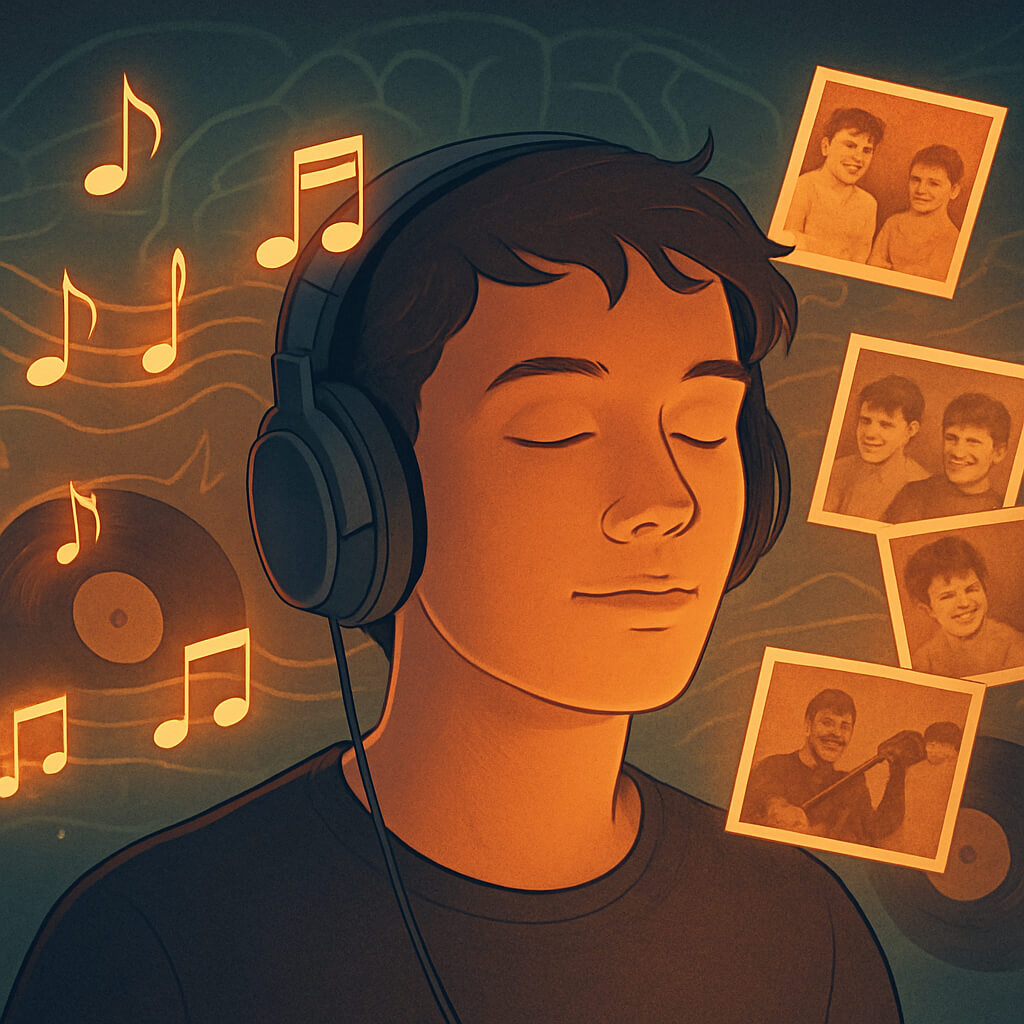July 08, 2025

Have you ever heard a song and instantly been transported to a distant memory? Maybe it was the first dance at your wedding, a road trip anthem, or the soundtrack to your teenage heartbreak. Music has an uncanny ability to tap into our memory banks in ways no other art form can.
But why does this happen? What is it about music that makes it so effective at unlocking moments we thought were long forgotten?
Let’s explore the powerful link between music and memory—and how you can use this connection to boost learning, enhance emotional well-being, and even support brain health.
Our brains are highly responsive to music. The way music interacts with the brain is truly multi-dimensional—engaging several regions responsible for emotion, memory, and even movement. Let's break down how this works.
One of the most remarkable demonstrations of the music-memory connection can be seen in Alzheimer’s and dementia patients. Even when individuals with these conditions struggle with recognizing loved ones or recalling recent events, they may still be able to sing or hum the lyrics of their favorite songs from decades ago.
Music's ability to unlock long-forgotten memories is likely due to its deep emotional connection to the brain. While other types of memory may deteriorate with age or disease, musical memory is often preserved longer. This is because the areas of the brain responsible for musical processing (like the hippocampus and amygdala) are closely linked to emotion—and emotion is a powerful memory enhancer.
Want to see this in action? Watch Alive Inside, a groundbreaking documentary that captures how personalized music playlists can help awaken patients who were previously nonverbal and emotionally distant. The impact is profound—music has the power to reconnect individuals to their most cherished memories.
As a result, music therapy has become a key tool in treating patients with Alzheimer’s, dementia, and other neurodegenerative conditions.
🔗 Curious about making your own emotional music? Try our AI Music Generator to create mood-based soundtracks in seconds, perfect for emotional or therapeutic use.
Ever wonder why it’s easier to memorize song lyrics than a study guide? There’s a reason for that!
Music's role in memory formation goes beyond just being a pleasant experience. The melody, rhythm, and rhyme in music act as memory anchors. These musical structures provide an organizational framework that our brain finds easier to retain.
For example, when you learn a new concept set to music, the melodic structure helps group related pieces of information together, making them easier to recall later. That's why it's often easier to remember the lyrics to a song than a long list of facts.
🎧 Subscribe for Free Weekly Music Drops to access calming or energizing tracks that aid focus and memory.
Music doesn't just help us remember events—it also helps us remember the emotions tied to those events. This makes music a powerful emotional stimulant.
Emotionally charged memories are often the most vivid and long-lasting. Music is so closely linked to emotion that it can trigger complex emotional states, sometimes even before we are consciously aware of it.
Music often serves as a time capsule for emotions. When you listen to a song from a past era, it doesn't just remind you of the event—it also brings back the feelings you had at that time. That’s why nostalgic songs have such an enduring power over us. They tie us to our past selves, evoking the same feelings we had during those pivotal moments.
🧠 Want to explore how sound triggers emotion in music? Book a Free Music Production Consultation to learn how to use musical dynamics, tempo, and harmony to create emotional impact in your own music productions.
One fascinating aspect of music's hold over our memory is the brain’s ability to predict what will come next in a song. When the prediction is correct, it triggers the dopamine system, creating a "feel-good" reward. This is why some songs, especially catchy ones, are so hard to forget.
When a song is predictable, our brain gets a sense of satisfaction from hearing it unfold as expected. This reward system reinforces the memory loop, making it easier to recall the song, and by extension, the memory associated with it.
Music isn’t just entertainment—it’s a deeply neurological experience tied to memory, emotion, and identity. Whether it’s helping dementia patients reconnect with their past, or enabling students to memorize complex information more easily, the power of music in memory is both scientific and soulful.
So the next time you hear that unforgettable song, take a moment to savor the connection. Let it transport you back in time. Your brain—and your heart—are working in perfect harmony.
Stay up to date with the latest tips, expert insights, product reviews, and step-by-step guides to help you grow, create, and succeed—no matter your industry or passion.